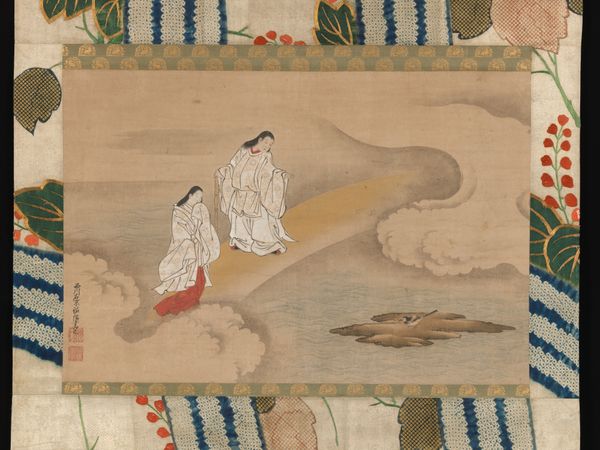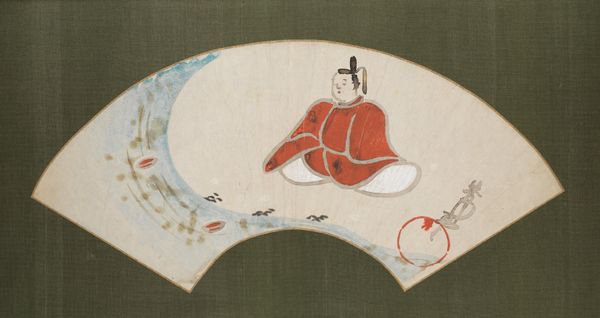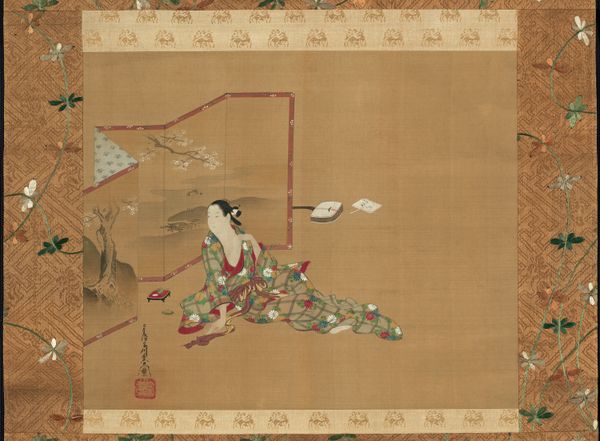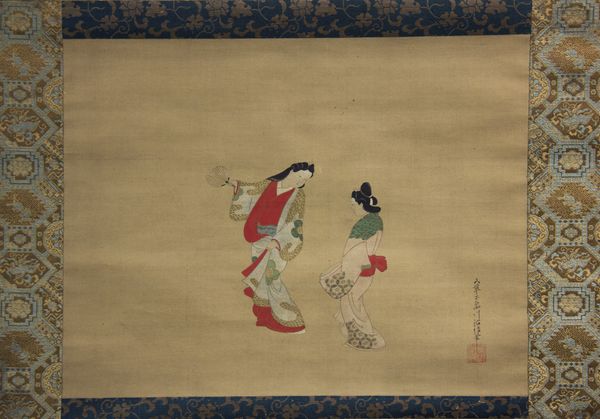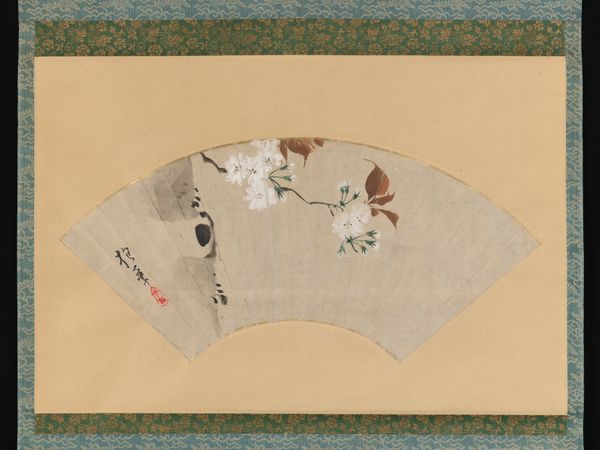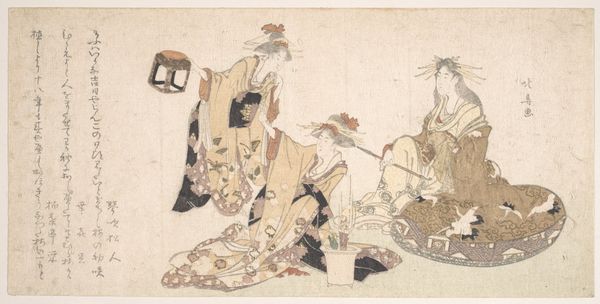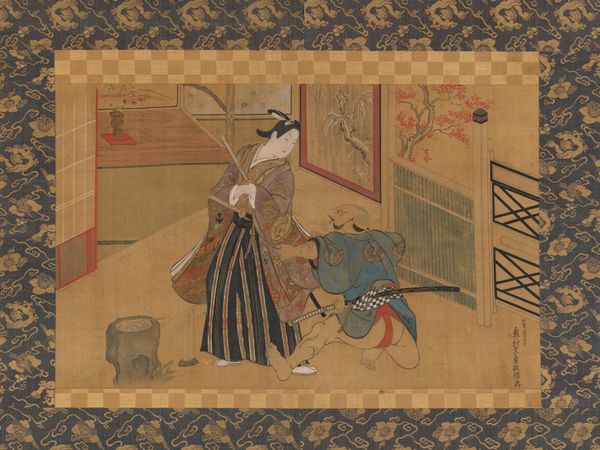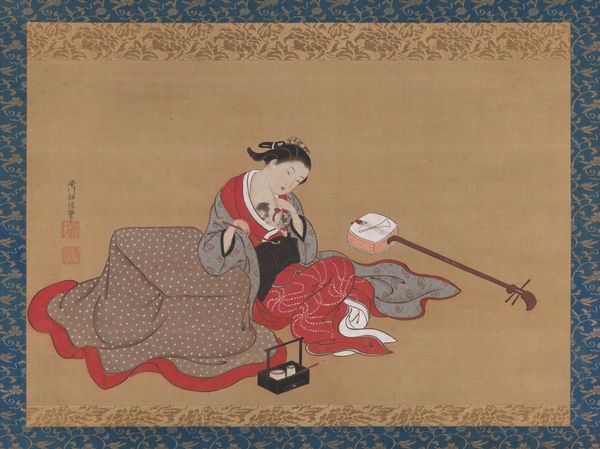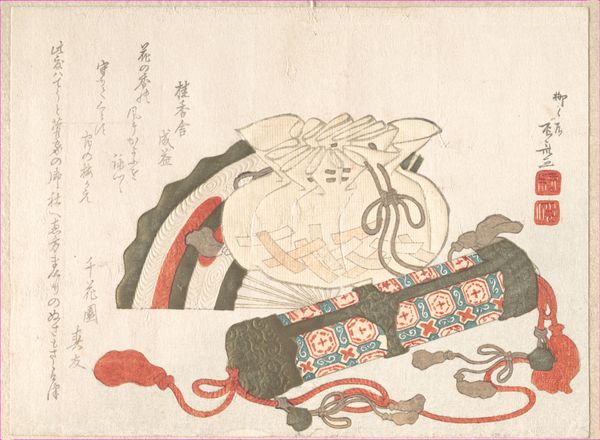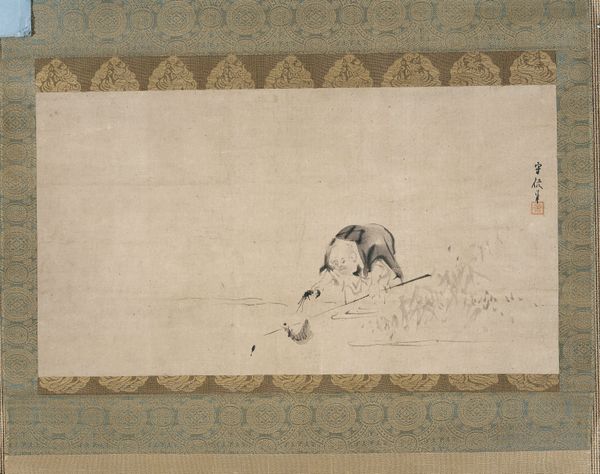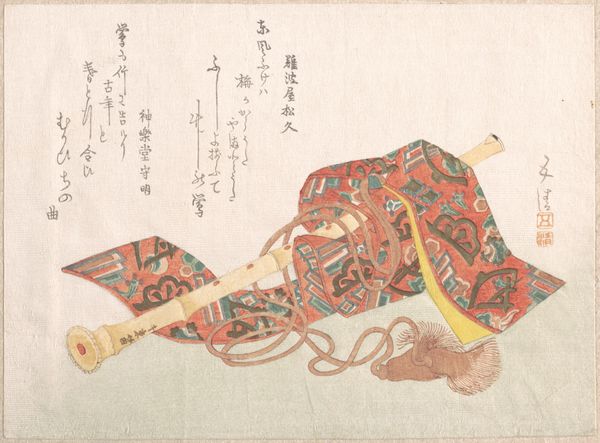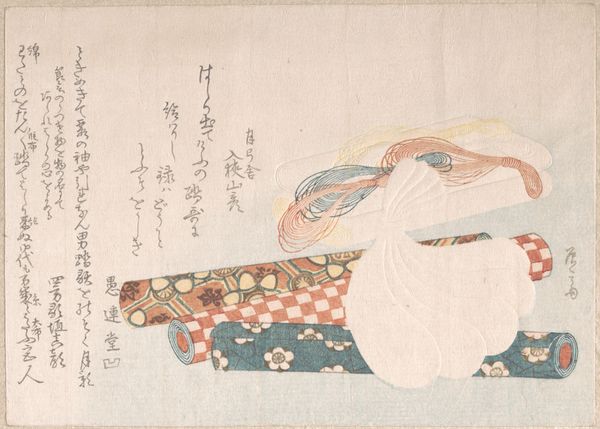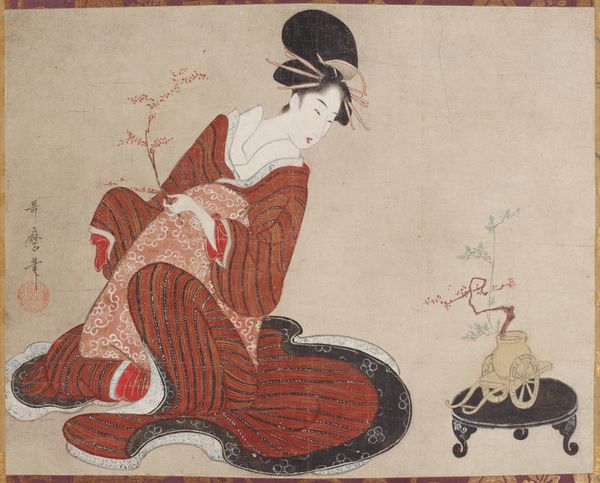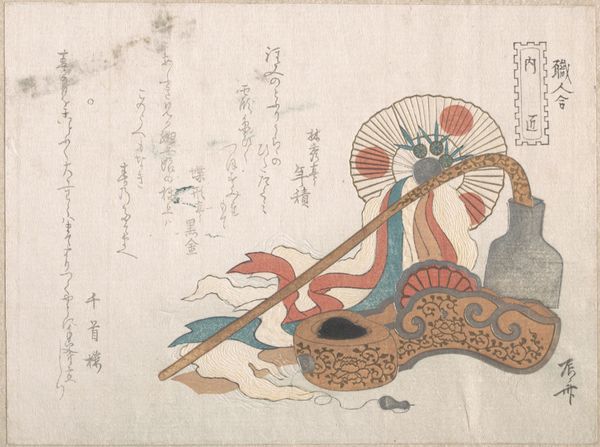
painting, print, paper, watercolor, hanging-scroll, ink
#
portrait
#
water colours
#
narrative-art
#
painting
# print
#
ukiyo-e
#
japan
#
paper
#
watercolor
#
hanging-scroll
#
ink
#
watercolor
Dimensions: 15 9/16 x 23 1/16 in. (39.5 x 58.5 cm) (image)52 9/16 x 29 15/16 in. (133.5 x 76 cm) (mount) 79 cm W w/roller
Copyright: Public Domain
Editor: Right, next up we have “Ono no Komachi Washing the Poem Paper,” a print made sometime between 1772 and 1786 by Tsukioka Settei. The piece is incredibly delicate. There’s this feeling of quiet melancholy hanging over the whole scene. I am struck by the empty space in the work, and the ornate robes of the figure. What stands out to you in this piece? Curator: It’s more than just melancholy, don't you think? To me, this print whispers of regret, a beautiful soul burdened by her own sharp words. I imagine her poetry swirling in that water, her achievements turned to ghosts. What do you make of the single, discarded slip of paper floating in the bowl? Editor: That's interesting! I hadn’t considered it that way. It could easily be seen as a rejection of her work. The poem paper itself could be read as her despair with her own talent? Curator: Precisely! And consider the ukiyo-e tradition. It often focused on pleasure and entertainment. This piece, though visually stunning, veers into introspection. There's almost a defiance of the norm in portraying such a private, vulnerable moment. Does it change how you perceive her, seeing her almost diminished? Editor: Absolutely! It makes her more human, approachable. It makes me wonder about the role of women artists and intellectuals during this period in Japan. It also speaks to how we wrestle with creative struggles today. Curator: And isn’t that the eternal dance of art? We look back, and suddenly, these figures, frozen in time, start breathing again. This Komachi is no longer just a name in a history book, but someone wrestling with her own demons, just like us. Editor: Yeah, I came into this conversation thinking of the print as aesthetically pleasing, but now I have much deeper appreciation of it and the artist's sensitivity to Komachi's internal life. Thank you.
Comments
No comments
Be the first to comment and join the conversation on the ultimate creative platform.
